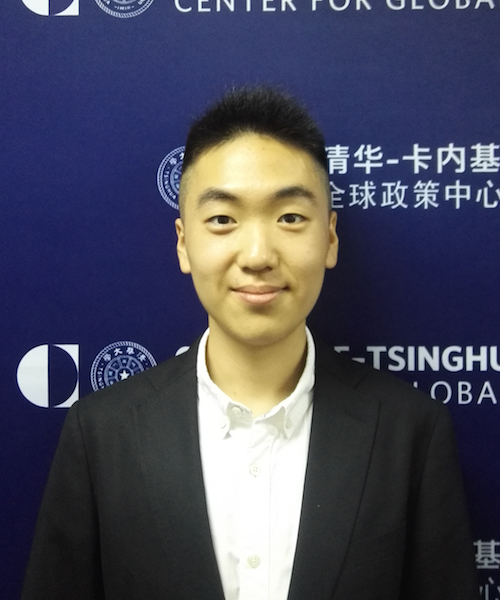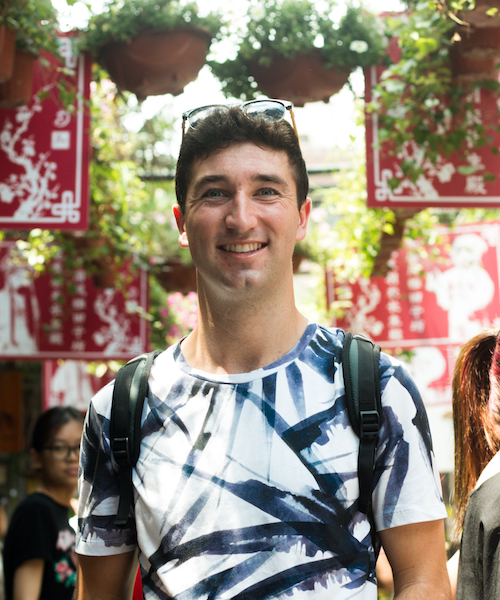
用数字时代的创新应对全球议题—对抗网络恐怖主义的案例
Chenyu Wu | 2018年6月3日
注:中英文网站上发表的学生日志均为英文。
Mutual understanding is essential for good cooperation but difficult to come by. While the ability to see the world from others’ points of view and thinking in others’ shoes is the key to finding common interest and working together, acquiring such ability requires substantial sharing of information and extensive communication between two parties; these were luxuries before the world was covered by the Internet. As future leaders of an increasingly interconnected world, the younger generations of the United States and China are expected to be better at empathizing with each other by making use of digital tools and innovations to actively build up networks, exchange thoughts and improve consensus-building so as to lay the ground for future cooperation in the face of pressing global issues. To achieve such goals, however, is far from easy because of the limitations of the existing networks. Platforms for communication, sharing and sensible discussion need to be built up by accountable individuals, student groups and college organizations to intentionally facilitate meaningful interactions among the young generation of China and the United States.
The first notable limitation to the existing networks are China’s internet firewall and sophisticated censorship of online content. Two consequences follow from these. First, Chinese internet users do not have access to popular social media and the platforms that people elsewhere use to share their knowledge and opinions, such as YouTube, Facebook and Twitter. This not only prevents others from knowing more about China, especially the attitude and opinion of China’s young generations, but also prevents China from knowing more about others’ views. Second, excessive information control subjects the population to domestic government propaganda, which limits the access to diversified perspectives and opinions that differ from governmental authorities. Such a “single story” is dangerous because by cultivating unitary thinking, it makes mutual understanding and considering other perspectives more difficult.
However, to say that China’s internet control is the only obstacle to better mutual understanding is invalid. Even if the firewall doesn’t exist, American and Chinese young generations are still going to face huge difficulties in exchanging opinions effectively and trying to think in the other’s shoes. The second limitation to the existing networks, especially social media like Facebook and Twitter, is that while they are powerful, they are also unregulated and emotional. Objective truth is hard to obtain on social media and users’ emotions can be easily swung by the intentional manipulation of information. Therefore, social media has a huge potential for political abuse, as proved by the recent case of Cambridge Analytica, a consulting firm who made use of users’ private information to help politicians develop “political propaganda campaigns”. More importantly, social media are far from an ideal place to promote the exchange of different opinions about serious global issues, because they confine users in a echo chamber and reinforce biases by sending news and opinions that cater to the user’s tastes. Even when users come across different views, there most likely will not be a meaningful discussion about the topic because it is more convenient to show “like” and “dislike” on social media instead of a clashing rational, logical and well-organized argument.
Therefore, new platforms need to be built up by student groups and college organizations who are dedicated to promoting U.S.-China cooperation to intentionally facilitate meaningful interactions among young Chinese and Americans and to cultivate mutual understanding in the face of pressing global issues. Three components are necessary. First, access to objective knowledge and views presented by Chinese and American officials, scholars and media about world issues should be provided on the platform to facilitate information sharing among users. Second, members involved should contribute to the platform by offering insight through various ways such as posting articles, leaving comments and engaging in rational discussion. Finally, necessary regulations should be set up to guarantee mutually respectful communication. Only through this way can young Chinese and Americans come to better mutual understanding through respectful, logical and meaningful interactions. Furthermore, users of the platform can expand networks, develop friendships, as well as build up cooperation in other projects to get in touch with each other personally through other channels. A number of such platforms have already been built up in the status quo, such as the Georgetown University Initiative for U.S.-China Dialogue on Global Issues, which has cultivated meaningful exchange of ideas among the student fellows and greatly improved mutual understanding on a variety of contemporary issues. More platforms need to be actively set up by student groups and organizations dedicated to improving U.S.-China relations, and involve more young Chinese and Americans who share the same visions to build up a bigger community.
Yunxin Wang is a junior at Beijing Foreign Studies University majoring in English with a minor in economics.

Chenyu Wu | 2018年6月3日

Michael Mullaney | 2018年5月30日

Hongjin Xu | 2018年5月29日

Cynthia Wang | 2018年5月28日

Ruolin Zhao | 2018年5月27日

Yamillet Payano | 2018年5月24日

Jessie Dalman | 2018年5月23日

Haile Chen | 2018年5月22日